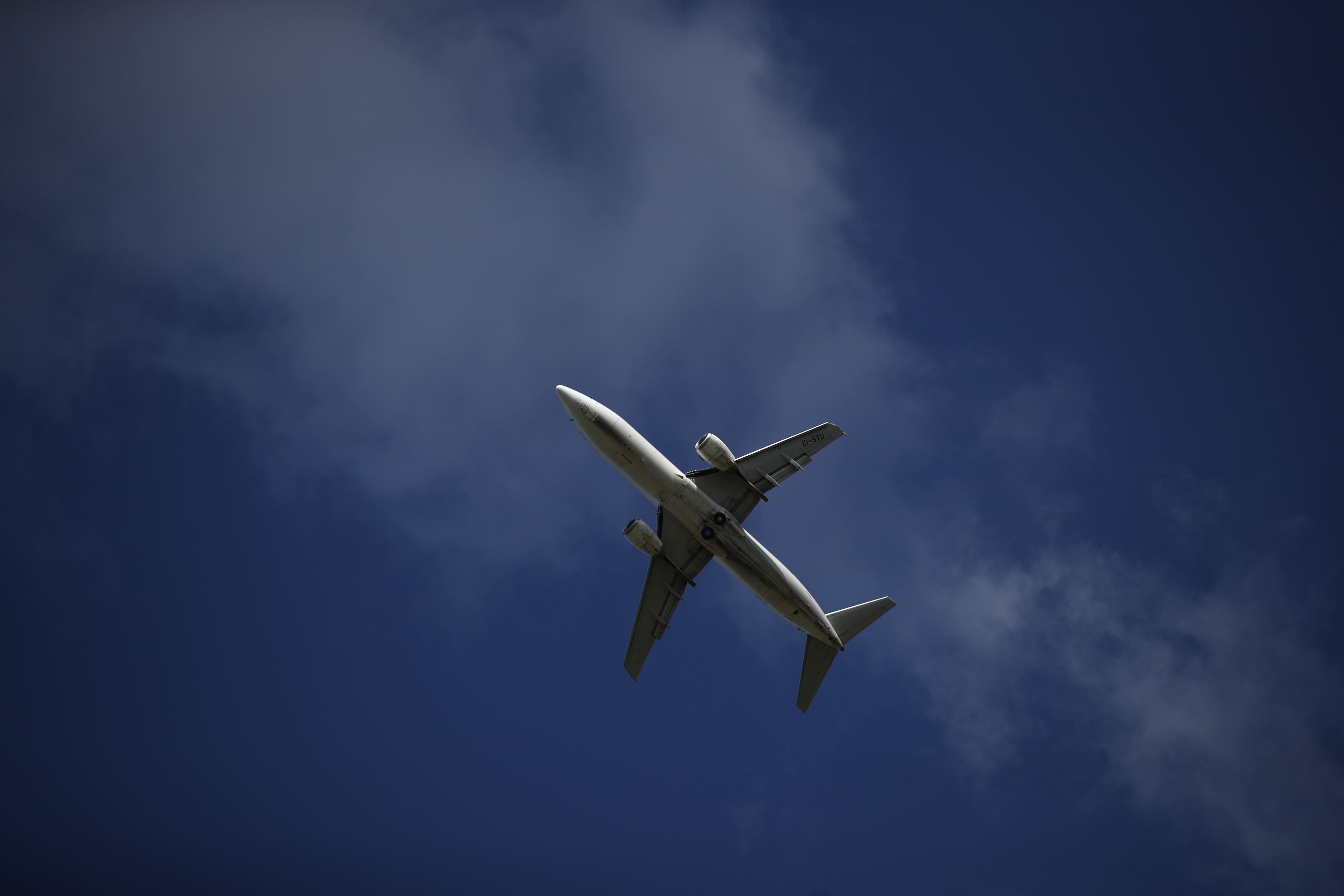Cut demand for flying if net zero policies not working by 2025, say MPs
Ministers have been reluctant to tell people not to fly and see alternative fuels as the answer.

The Government should consider actively reducing demand for flying if its current policies on cutting aviation emissions are not working fast enough by 2025, MPs have said.
Ministers have resisted the idea of telling people they should fly less, preferring instead to rely on the development of low-carbon alternatives to kerosene.
These sustainable aviation fuels (SAFs) can include ammonia, synthetic fuels or biomass – made from oils, fats, municipal waste or non-food crops.
Experts have questioned the viability of simply switching fuels, with scientists from the Royal Society calculating that replacing jet fuel with biomass would require half the UK’s agricultural land.
Aviation’s path to decarbonisation is substantially slower than that of many other sectors of the economy
Hydrogen has also been touted as an alternative but this would require a significant change in infrastructure on planes, airports and in its transportation, and would need a huge amount of renewable energy to produce it.
Figures taken pre-pandemic show aviation accounts for 8% of the UK’s greenhouse gas emissions and this, like all other sectors, must fall in line with the Government’s net zero by 2050 target.
The Environment Audit Committee (EAC) is concerned the Government’s Jet Zero Strategy is not doing enough to stem rising aviation emissions.
MPs want the Government to include these in its Carbon Budget assessments – the road maps towards net zero by 2050.
EAC member, Jerome Mayhew, said: “Aviation’s path to decarbonisation is substantially slower than that of many other sectors of the economy, and will require a number of different initiatives to make a tangible impact.
“First, the correct legislation needs to be in place. Despite promises over the years, the Government is yet to include aviation emissions in its Carbon Budgets which monitor progress in the UK’s emissions reduction policies.
“Second, we must support industry in developing new technologies and fuels, and provide the right certainty and definitions for what can be coined a sustainable aviation fuel.
“These new technologies must not only reduce CO2 emissions, but take into account and mitigate other environmental impacts associated with aviation.
“And finally, we must champion the UK innovation on zero carbon aircraft here at home for UK flights.”
The committee said domestic flights, which accounted for 3.7% of the UK’s emissions in 2019, could with the right innovation be run on electricity, which if produced renewably would result in zero emissions flights.
They also want the Government to ensure that any SAFs produced in the UK are truly sustainable and for there to be more research into the climate impacts beyond that from carbon dioxide, such as through soot or sulphur compound emissions.
If its policies are not cutting emissions fast enough, the Government should consider reducing demand instead, the committee said.
A Government spokesperson said: “Our Jet Zero Strategy sets out an ambitious approach to achieving net zero by 2050, allowing people the freedom to keep flying but in a way that’s better for the environment.
“The Sixth Carbon Budget will formally include the UK’s share of international aviation emissions for the first time.”
Bookmark popover
Removed from bookmarks